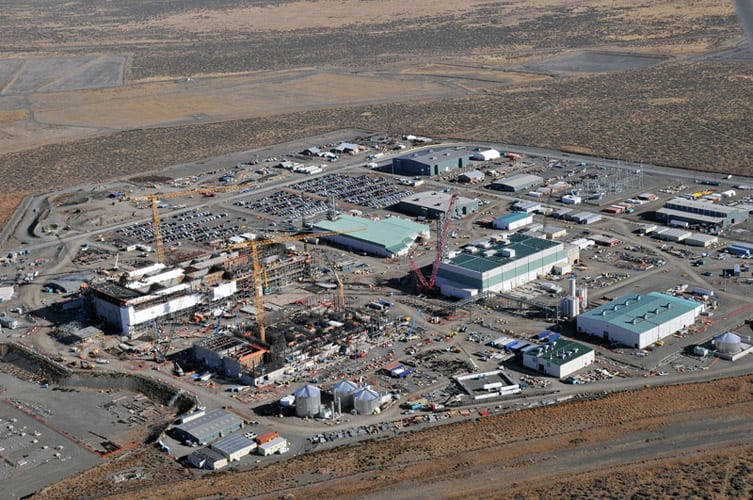
The congressional conference version of the fiscal 2019 National Defense Authorization Act (NDAA) includes the Senate spending allowance for defense environmental cleanup: the single-largest bloc of annual funding at the Energy Department’s Office of Environmental Management.
The House of Representatives voted 359-54 Thursday in favor of the compromise bill report released earlier in the week, without any discussion of DOE remediation issues. Senate Majority Leader Mitch McConnell (R-Ky.) then put the upper chamber on track for a vote on the bill next week.
The Senate version of the NDAA met the Energy Department’s request for $5.63 billion in defense environmental cleanup funding for the budget year that begins Oct. 1. The House authorized more: $5.68 billion. Without explaining their decision in more detail, conferees settled on the Senate authorization, according to a joint explanatory statement of the annual defense policy bill published Tuesday.
The NDAA sets ceilings for defense-related spending in a given fiscal year, with actual funding provided by separate appropriations bills. The 2019 Senate minibus appropriations bill covering the Energy Department would provide $7.2 billion for the Office of Environmental Management, which oversees remediation of 16 Cold War nuclear-weapon sites around the nation. The House version of the minibus proposed $6.9 billion for Environmental Management. That funding includes budgetary line items outside of defense environmental cleanup.
The two chambers have yet to reschedule final negotiations on the appropriations spending bill after a bicameral conference meeting was abruptly canceled July 12.
The joint NDAA conference bill would also:
- Extend the life of DOE’s Office of River Protection, which oversees underground tanks that hold 56 million gallons of radioactive waste at the Hanford Site in Washington state, through Sept. 30, 2024. That is in line with the House recommendation; the Senate bill did not address the matter. The office would otherwise have had to stand down on Oct. 1, 2019.
- Include the Senate proposal directing the secretary of energy to request a National Academies of Sciences, Engineering, and Medicine evaluation of cleanup operations under the Office of Environmental Management.
- Require the secretary of energy, or the secretary’s designee, to notify Congress within two days of any reported airborne release of radioactive or hazardous material from Hanford waste. The contamination release would have to be “above applicable statutory or regulatory limits” to trigger the congressional notification.
The overall defense environmental cleanup line item is broken down by specific environmental remediation sites. Funding is authorized at: $708 million for the Richland Operations Office, which manages non-tank waste operations at Hanford; $1.4 billion for the Office of River Protection; $349 million for the Idaho National Laboratory; $271 million for National Nuclear Security Administration sites and Nevada off-sites; $226 million for the Oak Ridge Reservation in Nevada; $1.4 billion for the Savannah River Site in South Carolina; and just under $397 million for the Waste Isolation Pilot Plant in New Mexico.
In a press release, House Armed Services Ranking Member Adam Smith (D-Wash.) touted the Hanford airborne radioactive material language in the NDAA and other measures connected to the former plutonium production complex in his state. The bill also authorizes $50 million more for environmental remediation at Hanford’s Central Plateau and directs that Congress receive regular updates regarding vapors from the site’s tank waste.
Under the bill, DOE contractors could be fined for breaching the department’s rules, regulations, and directives on nuclear safety and radiation protection, Smith said.
“I am proud to have secured critical nuclear safety and whistleblower protection provisions in the NDAA that will contribute to ensuring that the federal government fulfills its obligation to the Pacific Northwest for the safe remediation of the Hanford nuclear facility,” the lawmaker tweeted Thursday evening.